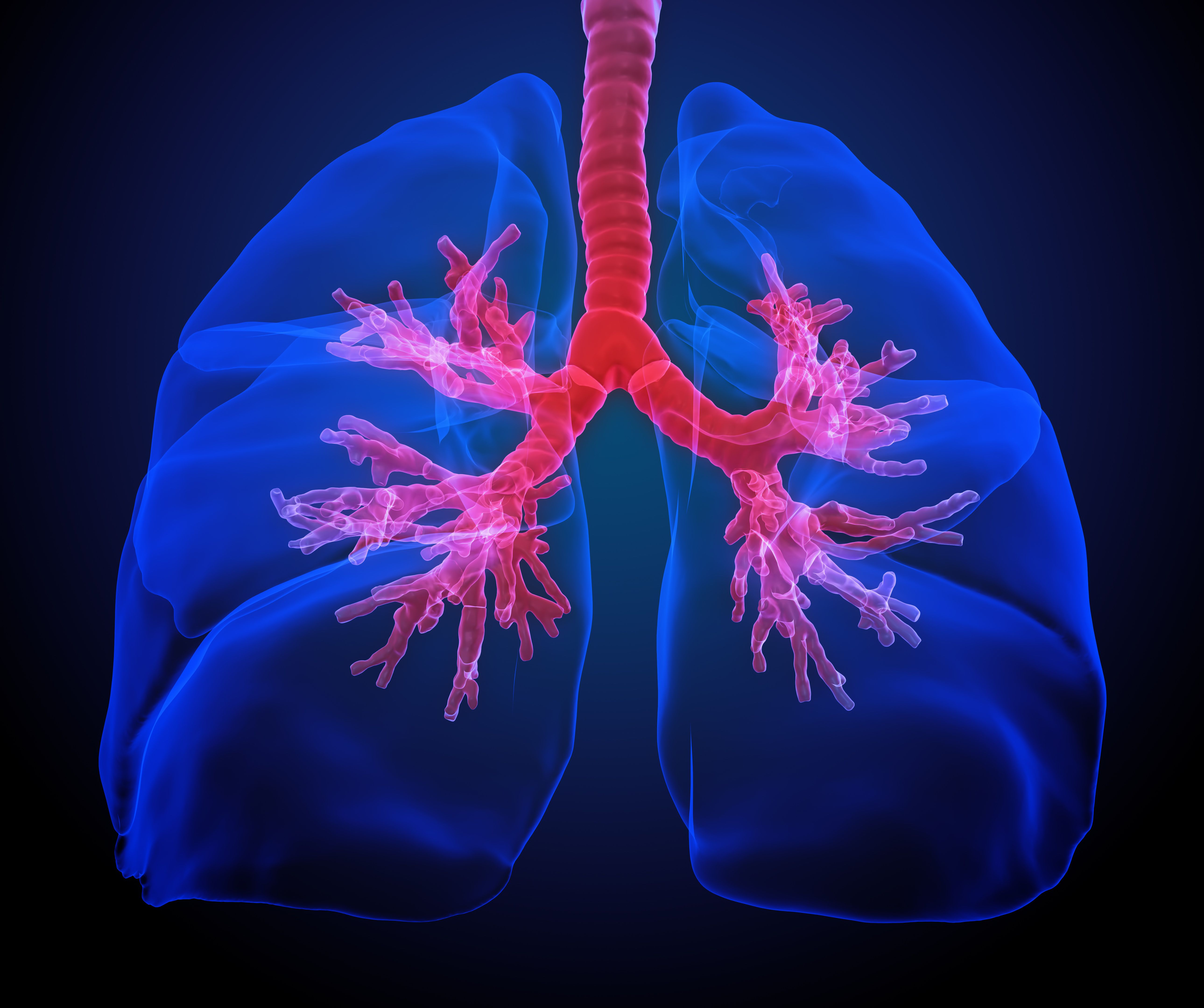FDA Grants AFM24 Plus Atezolizumab Fast Track Designation in Advanced NSCLC
AFM24 combined with atezolizumab has received a fast track designation from the FDA for treating advanced/metastatic non-small cell lung cancer without activating EGFR mutations.

- The FDA has granted a fast track designation to AFM24 combined with atezolizumab (Tecentriq) for the treatment of patients with advanced and/or metastatic non-small cell lung cancer (NSCLC) without activating EGFR mutations after progression on PD-1/PD-L1 therapy and platinum-based chemotherapy.
- AFM24 is a tetravalent, bispecific innate cell engager (ICE) which works to activate the innate immune system by binding to both CD16A on innate immune cells and EGFR.
- The combination is being studied in the phase 1/2a AFM24-102 trial (NCT05109442).
A fast track designation has been granted to AFM24, an ICE, plus atezolizumab in advanced and/or metastatic NSCLC without activating EGFR mutations following progression on PD-1/PD-L1 therapy and platinum-based chemotherapy.1
Initial efficacy findings from the EGFR wild-type cohort of the phase 1/2a AFM24-102 trial support this regulatory decision. Of the 15 patients in the study with EGFR wild-type NSCLC, 4 had responses, including 1 patient with a confirmed complete response, 2 patients with confirmed partial responses (PRs), and 1 with an unconfirmed PR.
In the EGFR wild-type cohort, patients had received a median of 2 prior lines of therapy. All 15 patients experienced disease progression on PD-1/PD-L1 therapy.2
Lungs © Mopic - stock.adobe.com

“The clinical data of AFM24 in combination with the checkpoint inhibitor atezolizumab is compelling. We’re observing meaningful responses in patients resistant to prior checkpoint inhibitor treatment,” said Wolfgang Fischer, PhD, chief operating officer of Affimed N.V., in a press release.1 “The fast track designation emphasizes the belief in the potential of this combination therapy to address currently unmet needs of patients with this devastating, life-threatening disease who have exhausted all standard-of-care options, including chemotherapy and checkpoint inhibitors.”
More data from the EGFR wild-type cohort of the study are expected to be presented at the 2024 American Society of Clinical Oncology Annual Meeting.
About the AFM24-102 Study
The open-label, nonrandomized, multicenter, dose-escalation, and dose-expansion AFM24-102 trial is currently assessing the combination of AFM24 and atezolizumab in those with selected EGFR-expressing advanced solid malignancies. Patients must have had disease progression after receiving prior treatment.3
Enrollment was open to patients aged 18 years or older with histologically or cytologically confirmed advanced or metastatic, EGFR-positive cancers, and patients were required to have adequate organ function.
In phase 1 of the study, patients with evaluable or measurable disease per RECIST 1.1 criteria were enrolled, and in phase 2, measurable disease per RECIST 1.1 criteria is required. Among those in the EGFR wild-type NSCLC cohort of the study, eligibility criteria required patients to have disease progression after at least 1 prior line of therapy that included platinum-based doublet chemotherapy, and prior treatment with a PD-1 or PD-L1 inhibitor is required in combination with chemotherapy or before or after chemotherapy.
There are also cohorts of the trial specifically for patients with advanced, unresectable, or metastatic gastric/gastroesophageal junction cancer, advanced or metastatic hepatocellular carcinoma, and advanced or metastatic NSCLC harboring a targetable EGFR mutation.
In the dose-escalation portion of the study, investigators are using a 3+3 design and evaluating AFM24 when given at varying doses combined with 840 mg of atezolizumab given via intravenous (IV) infusion. The goal of this portion of the trial is to determine the maximum tolerated dose and recommended phase 2 dose of AFM24.
The dose-escalation portion of the study is giving the combination of AFM24 plus 840 mg of IV atezolizumab to patients. Investigators seek to examine the preliminary efficacy of the combination, as well as its safety.
Evaluating the incidence of dose-limiting toxicities is the primary end point for phase 1, and overall response rate is the primary end point for phase 2a. In addition, secondary end points being evaluated consist of pharmacokinetics, safety, and efficacy.
REFERENCES:
Affimed receives fast track designation for combination therapy of AFM24 with atezolizumab for EGFR wild-type non-small cell lung cancer. News release. Affimed. May 29, 2024. Accessed May 29, 2024. https://tinyurl.com/5p2w2pvd
Affimed provides clinical response update on AFM24-102 trial in EGFR-wildtype non-small cell lung cancer. News release. Affimed. January 8, 2024. Accessed May 29, 2024. https://tinyurl.com/5cmddcvy
Study to assess AFM24 in combination with atezolizumab in selected advanced/metastatic EGFR-expressing cancers. ClinicalTrials.gov. Updated August 29, 2023. Accessed May 29, 2024. https://clinicaltrials.gov/study/NCT05109442